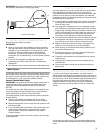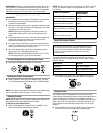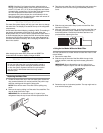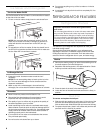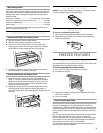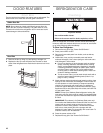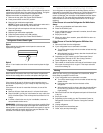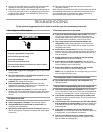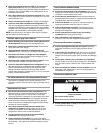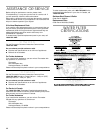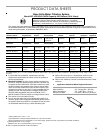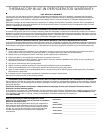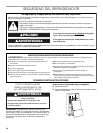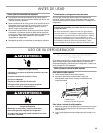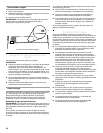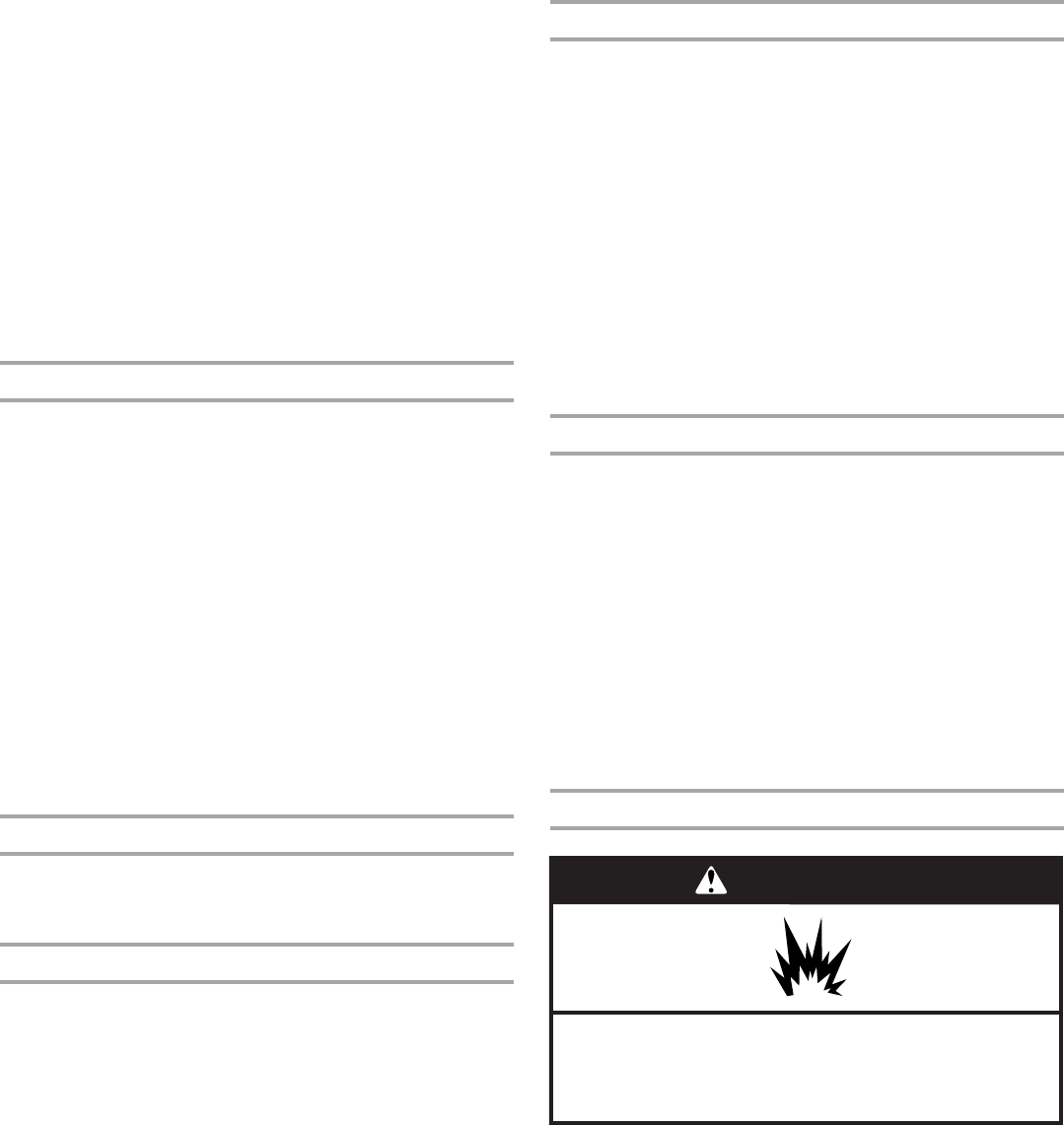
13
■ Does the ice maker mold have water in it or has no ice
been produced? Make sure your refrigerator has been
connected to a water supply and the supply shutoff valve is
turned on. See “Connect Water Line to Refrigerator” in the
Installation Instructions.
■ Has a large amount of ice just been removed? Allow three
to four days for an empty ice bin to completely fill, if no ice is
used during this time.
■ Are the controls set correctly? See “Using the Control(s).”
■ Is there a water filter installed on the refrigerator? The
filter may be clogged or installed incorrectly. Check the filter
installation instructions to ensure that the filter was installed
correctly and is not clogged. If installation or clogging is not a
problem, call a technician or other qualified person.
NOTE: If not due to any of the above, there may be a problem
with the water line. Call for service.
Off-taste, odor or gray color in the ice
■ Are the plumbing connections new, causing discolored or
off-flavored ice? Discard the first few batches of ice.
■ Have the ice cubes been stored too long? Throw old ice
away and make a new supply.
■ Does the freezer and ice bin or bucket need to be
cleaned? See the “Cleaning” or “Ice Maker and Storage Bin.”
■ Has food in the freezer or refrigerator been wrapped
properly? Use airtight, moisture-proof packaging to avoid
odor transfer from stored food.
■ Does the water contain minerals (such as sulfur)? A filter
may need to be installed to remove the minerals.
■ Is there a water filter installed on the refrigerator? Gray or
dark discoloration in ice indicates that the water filtration
system needs additional flushing. Run additional water
through the water dispenser to flush the water filtration
system more thoroughly (at least 6 qt [5.7 L] or 3 to 4 minutes
initially). Discard discolored ice.
The divider between the two compartments is warm
The warmth is probably due to normal operation of the
automatic exterior moisture control. If still concerned, call for
service.
Temperature is too warm
■ Are the air vents blocked in either compartment? This
obstructs cold air movement between the compartments.
Remove any objects from in front of the air vents. See
“Ensuring Proper Air Circulation” for the location of air vents.
■ Are the door(s) opened often? The refrigerator will warm
when this occurs. Keep the refrigerator cool by getting all
items out at one time, keeping food organized, and closing
the door as soon as possible.
■ Has a large amount of food just been added to the
refrigerator or freezer? Adding a large amount of food
warms the refrigerator. It can take several hours for the
refrigerator to return to the normal temperature.
■ Are the controls set correctly for the surrounding
conditions? See “Using the Control(s).”
■ Is the refrigerator not cooling? For models with digital
controls, turn the unit OFF then ON again to reset. See “Using
the Control(s).” If this does not correct the problem, call for
service.
There is interior moisture buildup
■ Are the air vents blocked in the refrigerator? Remove any
objects from in front of the air vents. See “Ensuring Proper Air
Circulation” for the location of air vents.
■ Are the door(s) opened often? Avoid humidity buildup by
getting all items out at one time, keeping food organized, and
closing the door as soon as possible.
■ Is the room humid? It is normal for moisture to build up
inside the refrigerator when the room air is humid.
■ Is the food packaged correctly? Check that all food is
securely wrapped. Wipe off damp food containers before
placing in the refrigerator.
■ Are the controls set correctly for the surrounding
conditions? See “Using the Control(s).”
■ Was a self-defrost cycle completed? It is normal for
droplets to form after the refrigerator self-defrosts.
The doors will not close completely
■ Are food packages blocking the door open? Rearrange
containers so that they fit more tightly and take up less
space.
■ Is the ice bin out of position? Push the ice bin in all the way.
If the ice bin does not go in all the way, it may not be put in
straight. Pull it out and try again. See “Ice Maker and Storage
Bin.”
■ Are the pans, shelves, bins, or baskets out of position?
Put the crisper cover and all pans, shelves, bins, and baskets
back into their correct positions. See “Crisper Drawer and
Cover.”
■ Does the refrigerator wobble or seem unstable? Level the
refrigerator. See “Adjust Doors” and “Level Refrigerator” in
the Installation Instructions.
The doors are difficult to open
■ Are the gaskets dirty or sticky? Clean gaskets according to
the directions in “Cleaning.”
WARNING
Explosion Hazard
Use nonflammable cleaner.
Failure to do so can result in death, explosion, or fire.



